 AMF has signed an agreement with the DRC Ministry of Health to fund 16.4 million nets for distribution from June 2021 to February 2022. This represents 54% of DRC’s long-lasting insecticide treated net (LLIN) need for this portion of their three-year rolling universal coverage campaign.
DRC is one of the two most malarious countries in the world with malaria responsible for the deaths of at least 100 children under 5 each day in DRC alone. Malaria is one of the primary health issues in DRC, with high incidence levels seen across the majority of the country.
The nets will be distributed in five of DRC's 26 provinces, specifically:
-
Kwilu: 3.9m nets to protect 6.3m people, distribution during Q2 2021
-
Sankuru: 1.6m nets to protect 2.7m people, distribution during Q3 2021
-
Lomami: 3.1m nets to protect 5.1m people, distribution during Q4 2021
-
Mongala: 1.9m nets to protect 3.1m people, distribution during Q1 2022
-
Sud Kivu: 5.9m nets to protect 9.6m people, distribution during Q1 2022
In total, 30 million people will be protected from the bites of malaria-carrying mosquitoes.
These nets have the potential to play a major part in reducing deaths and illness. This quantity of nets could be expected to prevent 10,600 deaths, 5 million cases of malaria and make a material impact on the economy of DRC. It is estimated that the improvement in GDP (Gross Domestic Product), a measure of economic performance, would be about USD 395 million.
After the required funding is received, AMF allocates individual donations to specific distributions and so far we have allocated 50,310 individual donations from 12,990 donors from 105 countries. These figures will increase as further donations are allocated. Many donations, large and small, help fund these nets.
We will report openly on progress and performance throughout and after the distribution.
Key elements of our agreement include:
-
AMF is funding 16,400,000 LLINs for distribution in 2021/early 2022
-
This is a co-funding partnership with non-net costs (shipping, pre-distribution, distribution) funded by the Global Fund
-
To support accurate data gathering, re-checks of net need numbers will take place by re-visiting a material number of households chosen at random.
-
Household-level data will be collected using electronic-devices and then entered into AMF’s Data Entry System (DES) for analysis and verification. This, and the above elements combined, are the basis for a highly accountable distribution.
-
Post-distribution monitoring of net use and condition (PDMs) will take place every nine months for two and a half years in all districts. AMF will fund this.
Further information via the dedicated distribution page and via the individual links below.
2022 Kwilu, Sankuru, Haut Lomami, Mongala, Sud Kivu
Other DRC distributions
2021 Haut Uele, Maniema, Bas Uele
2020 Kinshasa, Kongo Centrale, Ituri, Tshopo
2019 Tanganyika, Haut Katanga, Haut Lomami
2019 Equateur, Sud Ubangi
|
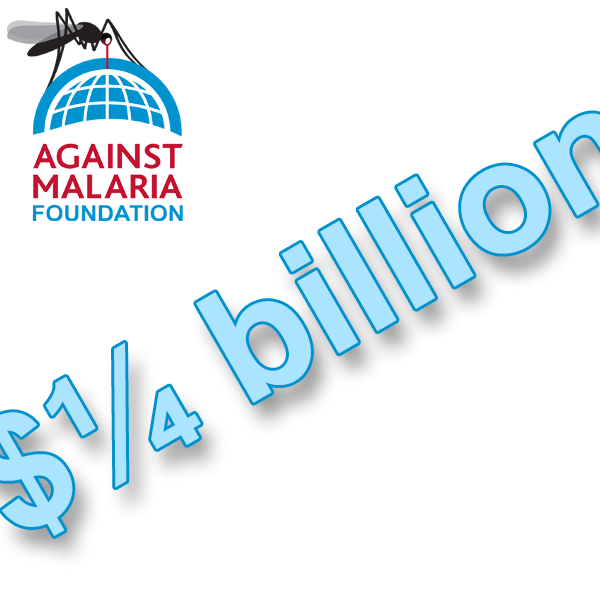
We have now passed a significant milestone thanks to you.
Together we have raised a total of US$250 million since AMF started! The donation that took us past that milestone was one from Ithaca, New York!
The more important figures of course are the number of lives saved, malaria cases averted, people protected and economic improvement as a result of the nets funded, distributed and used for protection at night.
This total equates to the funding of more than 115 million nets to protect 210 million people and an expected impact, once all nets are distributed, of more than 105 million cases of malaria averted, 100,000+ lives saved, and local economic improvement of US$3 billion.
We have also just passed 547,000 donations received, with this coming from over 139,300 people in 192 countries!
As always, our sincere thanks to everyone for their wonderful support and generosity.
|

We are closing in on a major milestone thanks to you.
We are 99% of the way to reaching a quarter of a billion dollars raised since AMF started!
This total has been reached thanks to 532,458 donations from 137,500 people from 192 countries.
These funds have allowed us to buy 114 million nets to protect 206 million people with the estimated impact of these nets (once all are distributed and have been in place for three years) being ~100,000 lives saved, 50 to 100 million cases of malaria averted and local economies improved by US$3 billion (12x the total raised). When people are ill they cannot farm, drive, teach - function - so the improvement in health leads to economic as well as humanitarian benefits.
Thank you for your wonderful support - and we’ll announce reaching US$ ¼ billion when we get there!
|
A short update on activities that have taken place at the beginning of this year.
-
 In Uganda, the 2020 mass distribution campaign is due to begin in early July following a lifting of lockdown and changes to the campaign strategy due to COVID-19. The most notable of these changes is the decision to carry out household registration and distribution simultaneously. This change, alongside other considerations due to COVID-19, means that more nets will be needed. Using household level data from the last distribution, we estimated that this additional net need would be 1.3m and have purchased these nets. Distribution of AMF nets will not begin until later in the year but AMF will monitor the first wave of distribution via an independent organisation. Lessons learnt will be made available to all partners so that any necessary improvements to the campaign can be made for subsequent distribution waves. Household level data will still be collected electronically and the planned study to monitor a new net – the Royal Guard – is still planned to take place. Post-distribution monitoring (PDM) 30 months after the 2017/18 distribution is now complete. Field monitoring in the Western region finished in March and the sleeping space coverage at 30 months in the Western region is 74%, a strong result.
In Uganda, the 2020 mass distribution campaign is due to begin in early July following a lifting of lockdown and changes to the campaign strategy due to COVID-19. The most notable of these changes is the decision to carry out household registration and distribution simultaneously. This change, alongside other considerations due to COVID-19, means that more nets will be needed. Using household level data from the last distribution, we estimated that this additional net need would be 1.3m and have purchased these nets. Distribution of AMF nets will not begin until later in the year but AMF will monitor the first wave of distribution via an independent organisation. Lessons learnt will be made available to all partners so that any necessary improvements to the campaign can be made for subsequent distribution waves. Household level data will still be collected electronically and the planned study to monitor a new net – the Royal Guard – is still planned to take place. Post-distribution monitoring (PDM) 30 months after the 2017/18 distribution is now complete. Field monitoring in the Western region finished in March and the sleeping space coverage at 30 months in the Western region is 74%, a strong result.
-
In DRC, the distribution of 1.9 million nets to 550,000 households began 'door to door' in Sud Ubangi province on 24th May. Photos below. This distribution was delayed due to the COVID-19 lockdown and the need to procure PPE (personal protection equipment), availability of cash for payments in province and a security incident during cash transfer from the capital to health zones. Distribution in Haut Katanga province is scheduled to begin in July. Distribution in Tanganyika province will start in July, where registration and distribution will be undertaken simultaneously due to COVID-19. We have purchased 1.5m additional nets due to COVID-19.
-
In Togo, the first shipment of 1.5 million AMF nets has arrived in Lomé. Monitoring of the campaign has started with our independent monitor, GRASE Population. Registration and distribution will now take place simultaneously 'door to door'. We have committed to purchasing 0.5m additional nets to ensure full coverage considering the changes due to COVID-19.
-
In Ghana, the PDM at 18 months in Brong Ahafo region was successfully completed in March. Data collection in the Upper East region was delayed slightly due to COVID-19, but ultimately took place with our partner World Vision providing additional training to their data collectors on COVID-19 related precautions, including use of PPE. Results of the approach were positive with all households accepting data collectors into their homes for net inspection and many welcoming their COVID-19 sensitisation messages. The Data collection in the third and final region, Ashanti, is taking place now.
-
In Guinea, our partner Cabinet Diagnostic undertook PDM at 9 months in four waves between February and May. Results for the first four waves show 94% of nets distributed are present in households with 82% of nets hung and in use.
Our discussions with both the Malian and Guinean authorities are making progress to ensure the nets diverted to Mali are returned to Guinea and used to protect Guineans as intended. A blogpost in the next month will provide an update.
-
In Zambia, after pausing the 18-months PDM activity in Central Province in February due to the security situation, our partner CHAZ was able to resume post distribution monitoring in March. This was then forced to stop before completion on 30th March due to Government restrictions on movement due to COVID-19. PDMs resumed in Central and Western province on 16th June and will be followed by the PDM in North-Western province. In addition, we are reviewing the accuracy of the distribution data from the last campaign (2017) by re-entering a large sample of distribution data collected during PDMs.
-
In Papua New Guinea (PNG), our partner RAM continues to distribute nets in provinces scheduled to receive this support in 2020. Milne Bay is complete, and the team is hard at work in the Highlands areas. PNG has had relatively few cases of COVID-19, meaning the campaign is continuing with only small changes and minor delays. RAM is, however, taking additional precautions during the distribution: teams are quarantined for a number of days after travelling from Port Moresby to the provinces and distribution is now carried out house-to-house rather than at fixed sites where large groups would gather. The arrival of a small number of nets (16,000) in Enga province is delayed by one month due to airlines not operating. Overall, the campaign is on track to distribute 1.1m AMF-funded nets in high-risk areas.
-
In Malawi, our partner the Malawi Red Cross Society was scheduled to undertake PDM activity at 18 months in April. This was postponed due to Government COVID-19 restrictions. Following the sharing of experiences between our partner World Vision in Ghana and the Red Cross in Malawi (and we were delighted to see the openness and willingness of this sharing and cooperation - sharing best practice), and a relaxation of government measures, a COVID-19 approach has been devised and PDMs will resume in July.

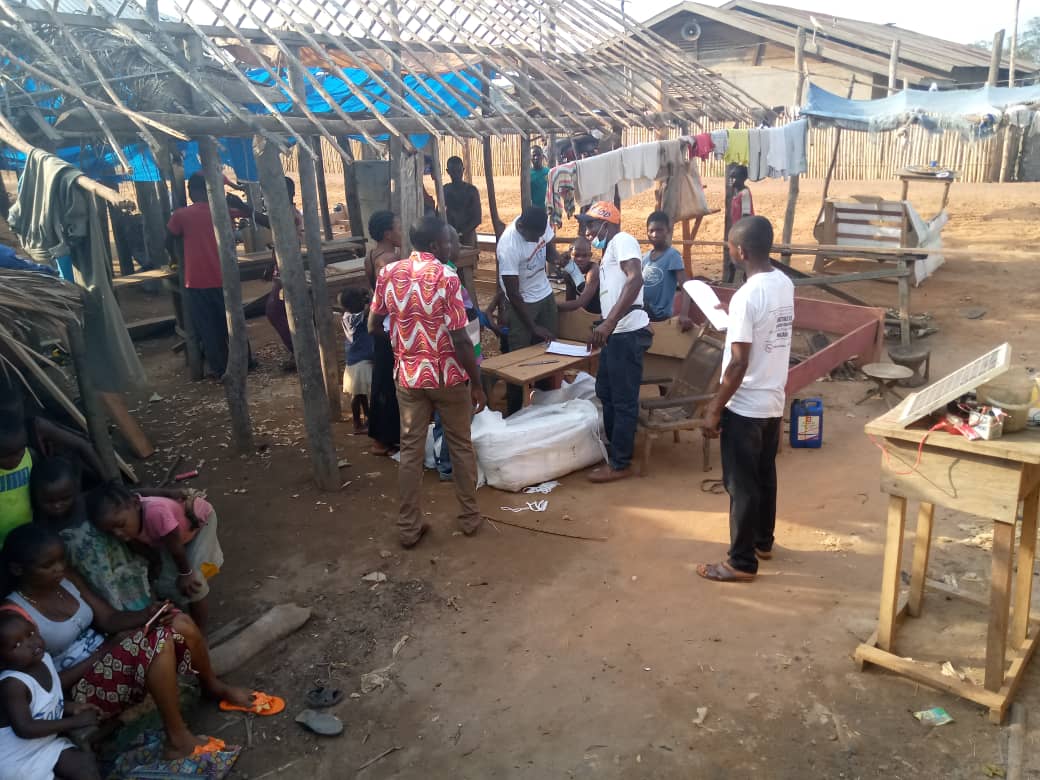



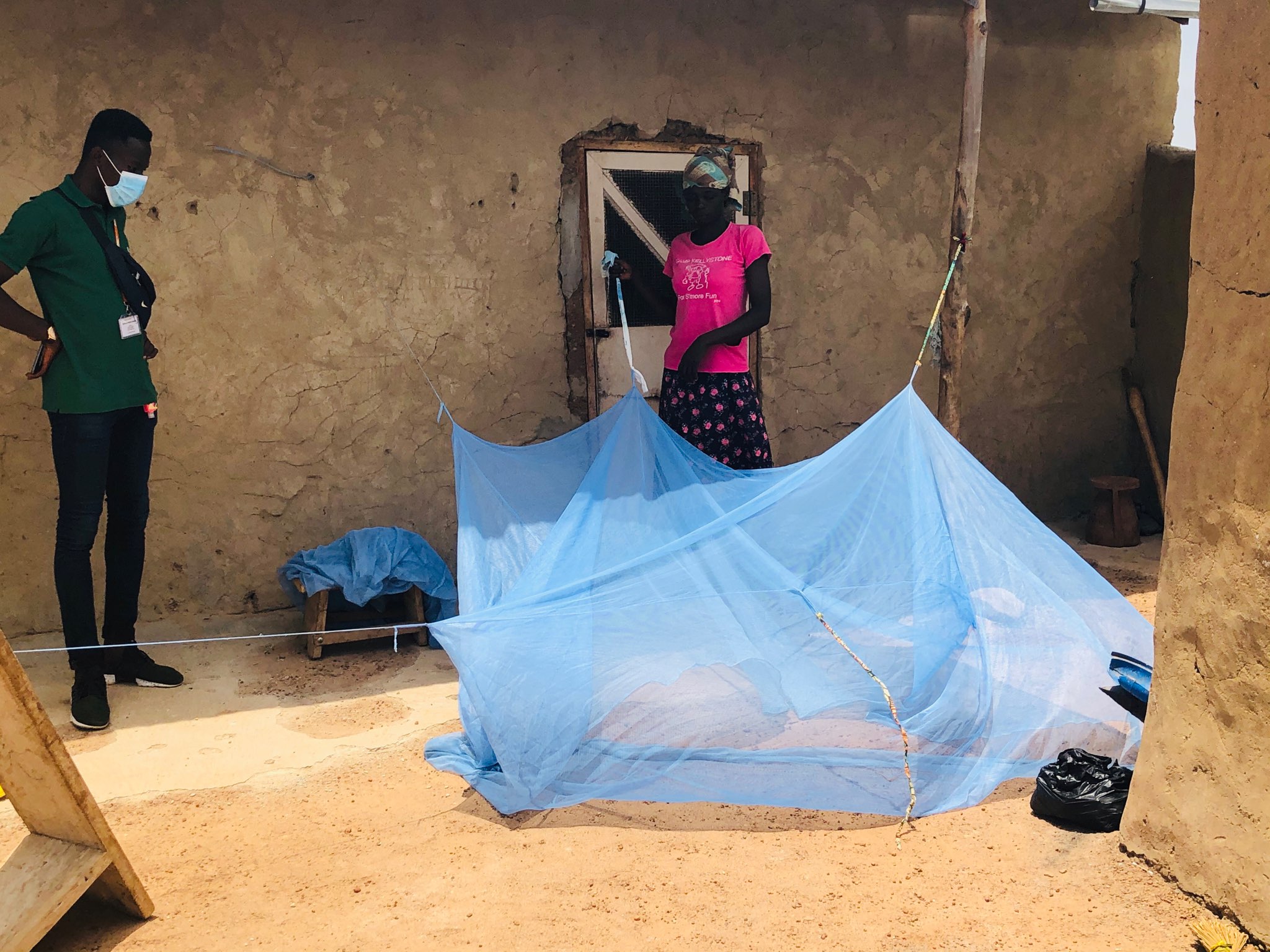

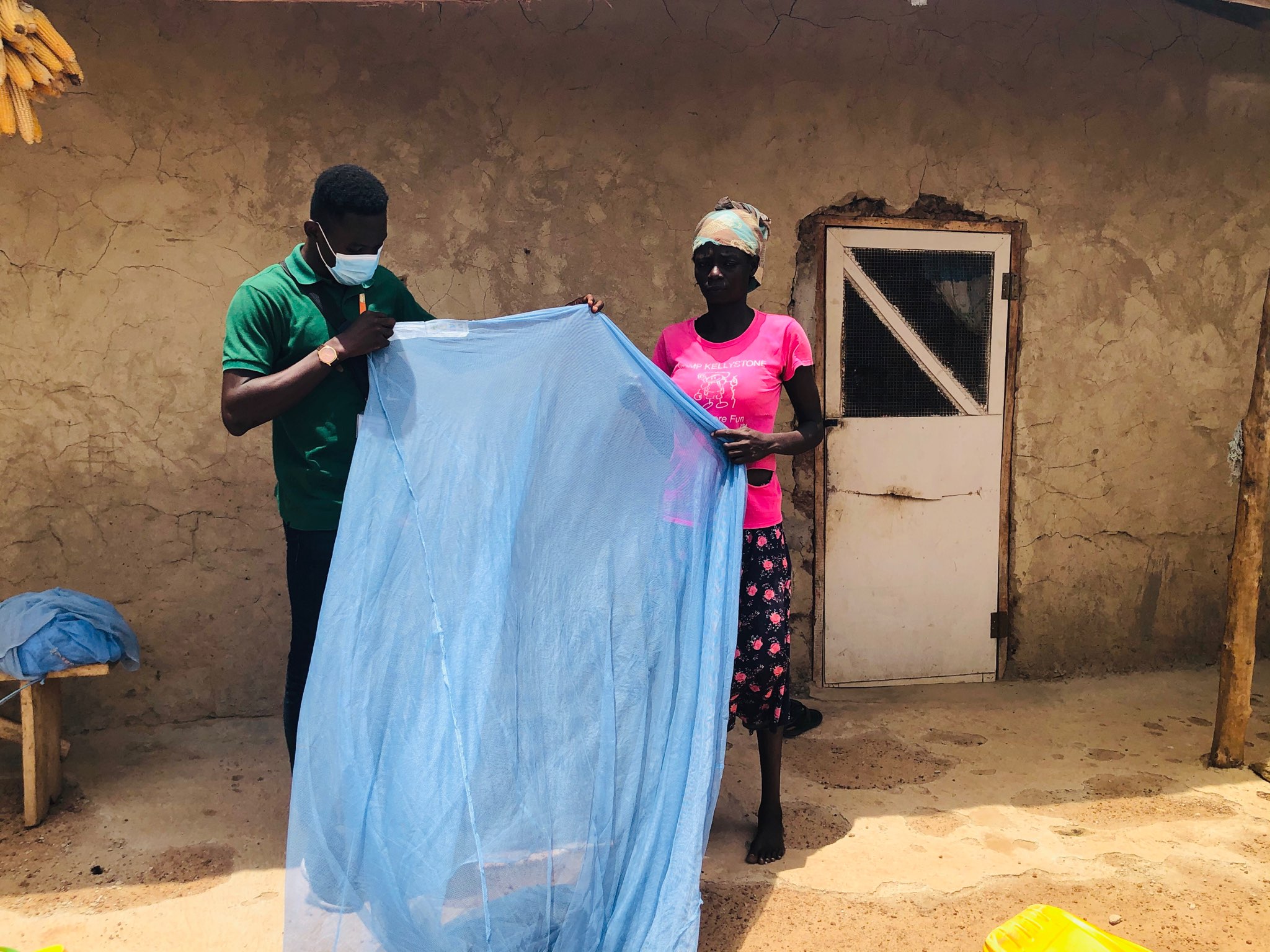

|

Summary
Recent modelling by the World Health Organisation (WHO) warns that the number of malaria deaths in sub-Saharan Africa in 2020 could double in comparison to 2018 if malaria prevention activities are reduced or delayed by COVID-19.
Detail
The report estimates that in the worst case scenario the number of deaths would reach 769,000, which is equivalent to the mortality level seen 20 years ago. This scenario would arise if COVID-19 were to stop LLIN campaigns and routine LLIN distributions, limit access to effective treatment for malaria and reduce the availability of antimalarial drugs. The model assumes that other forms of malaria prevention would continue (i.e. indoor residual spraying and seasonal malaria chemoprevention), which is not necessarily the case.
There are 27 countries in sub-Saharan Africa planning to carry out LLIN campaigns this year. Together, these countries account for 85% of total malaria cases and deaths in the region. If the campaigns do not take place, the WHO estimates that:
“…malaria cases and deaths will increase by up to 10%, even if access to effective malaria treatment is maintained at current level. It is estimated that there would be between 5 and 17 million additional cases… and up to 30 000 lives would be lost to malaria compared to the 2018 baseline. About 70% of these additional deaths would be of children under the age of 5.”
Furthermore, it is possible that treatment will be affected by the pandemic. Individuals may avoid visiting health centres for malaria diagnoses and treatments for fear of catching the virus, and overstretched health facilities may be unable to provide effective treatment.
AMF is funding nets for LLIN campaigns in four countries in 2020: DRC (13.1m) nets, Uganda (11.6m nets), Togo (3.5m nets) and PNG (1.1m nets).
Currently, all countries are following WHO guidance and intend to continue their net campaigns, and are working on strategies and operational adjustments that will enable nets to be distributed where they are needed while minimising the risk of spreading coronavirus.
Africa registered a 43% jump in reported COVID-19 cases between April 16th and 23rd.
We continue to work with our partners to ensure nets are distributed and the worst impacts laid out in the WHO report are avoided.
|

Since our previous update, the eight countries where AMF is working have all implemented COVID-19 measures. These are affecting our programmes in different ways and more detail is provided below.
We are in regular contact with our partners to receive updates and discuss adjustments to plans. This is particularly important for the four countries in which we have 2020 net distributions planned – DRC , Uganda, Togo and PNG. We continue to support the strong guidance from WHO to maintain malaria prevention activities. Halting or delaying net distributions could well result in a spike in malaria cases and deaths that exceeds the potential harm caused by COVID-19. It is of course vital that all measures are taken to ensure the safety of the health workers that carry out distributions and we are discussing with our in-country partners the changes needed to our normal procedures.
The Alliance for Malaria Prevention (AMP) has recently published guidelines for carrying out distributions in COVID-19 affected countries. To reduce the chance of transmission, training will be carried out remotely and distribution sites that attract crowds will be avoided. The registration process – the door to door visits where each household is surveyed to understand the net need – is likely to be simplified. These changes will mean that net need is not known as accurately as in a normal distribution and it is therefore likely that an increased number of nets will be required to reach similar and acceptable levels of coverage. Other factors that are likely to increase net need include: the recommendation that those suffering from COVID-19 self-isolate and sleep separately; nets that have been used for COVID-19 sufferers may be rejected afterwards for fear of infection.
Many tools are available for tracking COVID-19, but we have been using this one to follow the cases in the countries in which we’re working. This graphic also shows a visualisation of the propagation of COVID-19 through the continent of Africa.
Impact on AMF’s programmes
Distributions
DRC – Going ahead as planned (with COVID-19 related operational adjustments)
The distribution in Sud Ubangi province is going ahead and is due to begin on May 5th. It will be a door to door distribution (as always planned) and not a ‘fixed site distribution’ where people would gather to receive nets. The PNLP has confirmed to us that PPE equipment will be available to all health workers and we will be monitoring closely the delivery and availability of this protective equipment. As current measures prohibit travel from Kinshasa to the provinces, the normal national staff from the NMCP and our distribution partner will not be present in the province. Risk mitigation measures have been taken and AMF has increased its independent monitoring presence in Sud Ubangi with our independent monitor RHA. Distribution in Haut Katanga is still due to go ahead, and discussions are ongoing as to how to reorganise the distribution which was originally planned as a fixed site distribution.
Uganda – Temporary delay
2020 distribution campaign on hold until current lockdown ends. Last week the 14 day lockdown was extended until May 5th. Currently, this is a 6 weeks delay to the net distribution.
Togo – Currently going ahead as planned
Discussions are continuing to establish what operational changes may be needed for the 2020 distribution. Currently the country is not in full lockdown, but a curfew and social distancing measures are in place.
PNG – Going ahead as planned (with COVID-19 related operational adjustments)
Social distancing measures are in place but distributions are continuing as they have been deemed an essential activity by the government.
Post-distribution monitoring
Guinea – Going ahead as planned (with COVID-19 related operational adjustments)
The final PDM at 9 months is going ahead this week with the following measures taken in line with government advice: 4 people per vehicle, 2 masks per day for all workers, alcohol solution, regular hand washing, social distancing, hygiene measures and temperature checks on leaving Conakry. We will continue to monitor closely the situation.
AMF’s PDM activities have been delayed in some countries as follows:
Ghana – Temporary delay
There is a 2-month delay to PDMs due to lockdown. The situation will be reviewed in 10 days when the current lockdown period ends, although high COVID-19 cases may mean that there is an extension.
Malawi – Temporary delay
There is a 2 month delay to PDMs due to COVID-19 measures. A three-week lockdown began last Saturday but has since been overruled by the high court.
Zambia – Temporary delay
PDMs have been suspended due to measures taken by the government. The country is not a full lockdown and options for continuing monitoring work are being explored.
|

Summary
The WHO has urged countries to ensure the continuity of malaria services in the context of the COVID-19 pandemic because reducing malaria can be expected to reduce the impact of COVID-19. We are discussing the situation regularly with all partners and it seems likely that the best way for AMF to contribute to reducing the impact of the pandemic on both COVID-19 and malaria morbidity and mortality will be to fund more nets. Initially, this will be for AMF’s three programmes with upcoming distributions, in DRC, Uganda and Togo, that involve distributing 30 million nets. We are now increasing our focus on raising funds to enable us to fund these additional nets.
Detail
The WHO has issued guidance that urges countries to ensure the continuity of malaria services in the context of the COVID-19 pandemic.
"As COVID-19 continues its rapid spread, WHO would like to send a clear message to malaria-affected countries in Africa," said Dr Pedro Alonso, Director of the WHO Global Malaria Programme. "Do not scale back your planned malaria prevention, diagnostic and treatment activities."
Ensuring access to core malaria prevention measures is an important strategy for reducing the strain on health systems; these include vector control measures, such as insecticide-treated nets…"
The experience of the Ebola outbreak in 2014-2016 showed the importance of maintaining, and indeed increasing, malaria control activities to help reduce the morbidity (illness) and mortality from Ebola and malaria.
"During the Ebola outbreak, malaria mortality increased as net distributions ceased and health systems ran out of drugs. Close resemblance of early Ebola symptoms with those of malaria, led to difficulties in early diagnosis. Fear on the part of community members of contracting ebola in the health-care facilities prevented those suffering from malaria from seeking treatment. As Ebola overwhelmed health-care infrastructure, insufficient resources for malaria control in these regions led to increased mortality and morbidity. COVID-19 is likely to create similar problems. Lessons learned from this Ebola crisis show that preventive measures against both the COVID-19 threat and the existing malaria are required."
An attempt at quantifying the impact of the 2014-2016 outbreak was carried out by researchers as published in The Lancet., an extract of which is shown below:
"Findings
If malaria care ceased as a result of the Ebola epidemic, untreated cases of malaria would have increased by 45% (95% credible interval 43–49) in Guinea, 88% (83–93) in Sierra Leone, and 140% (135–147) in Liberia in 2014. This increase is equivalent to 3·5 million (95% credible interval 2·6 million to 4·9 million) additional untreated cases, with 10 900 (5700–21 400) additional malaria-attributable deaths. Mass drug administration and distribution of insecticide-treated bednets timed to coincide with the 2015 malaria transmission season could largely mitigate the effect of Ebola virus disease on malaria.
Interpretation
These findings suggest that untreated malaria cases as a result of reduced health-care capacity probably contributed substantially to the morbidity caused by the Ebola crisis."
A March 16, 2020 article in the Lancet discussed the importance of ‘Preparedness is essential for malaria-endemic regions during the COVID-19 pandemic’ and the continuity of malaria control activities.
“These features of COVID-19 and the previous experiences of the Ebola outbreak point to the need for malaria-endemic countries to consider preventive measures against not only the COVID-19 threat but also its likely impact on existing malaria control efforts.
Resource allocation should be optimised whenever possible to ensure minimal disruption to malaria control should COVID-19 management become necessary.
…the distribution of ITNs might be considered for short-term malaria relief in hyperendemic areas. Such measures would also aid efforts in COVID-19 management by reducing the strain on medical resources and minimising confounding factors in diagnosis.
…malaria-endemic countries must be prepared for the challenges that COVID-19 might bring while minimising disruption to malaria control.”
It is likely AMF will need to fund more nets for the three programmes we are currently in the middle of (in DRC, Uganda and Togo) that involve distributing 30 million nets. Some adjustments to our standard process may also be necessary to reduce the risk of infection through the net distributions.
The likely additional net need is because as people become infected in these countries, which is to be expected, they will need to sleep separately from other family members so more nets will be needed. Nets may also last for less time, if for example people increase the frequency and intensity of washing nets due to hygiene measures for COVID-19.
The continuation of the net distributions is seen by all of us in malaria control as vitally important to prevent increased and high levels of malaria as co-morbidity suggests that this would lead to an even greater impact from COVID-19.
Given funding requests to AMF prior to the COVID-19 outbreak already substantially exceeded the funds we have available, we expect our funding to come under further strain and are focusing further on raising funds to ensure we can play as much a part as we can in reducing malaria and the impact of COVID-19.
|
 We provide below an update on how the coronavirus is affecting AMF’s work. Currently it is minimal, but we keep this constantly under review and are expecting this to change as matters develop in Africa. Net distributions are likely to be an important part of minimising the coronavirus impact as increased malaria rates are likely to increase the mortality rate from coronavirus. We remain focused on fundraising to fill significant funding gaps.
Net production
-
No change to our last blogpost: currently no delays to our distributions are projected to arise from production problems. We are continuing to monitor the situation closely, but the current easing of the situation in Asia is helping in this area.
Distributions
-
No disruption to distribution dates so far, but clearly there is a high risk of delay
-
In country partners are becoming concerned about the potential effects of travel restrictions (as for the Ghana PDM)
-
Malaria may increase COVID-19 mortality, which will make it more important to keep distributions going if possible
-
We are monitoring country specific coronavirus data and liaising closely with the MOH in each country in which we operate
Post-distribution monitoring
-
The Government of Ghana has now imposed travel restrictions which have forced AMF’s PDM-18 to be suspended for a minimum of 1 month
-
This is the one PDM to have been affected so far
-
This is likely to change and we are keeping all PDMs under review
Travel
-
AMF staff will not be travelling in the short term
-
No mission critical trips had been planned
AMF staff
-
None of the AMF team has been affected so far
-
The two staff members previously working in co-working spaces are now working from home
-
As other AMF staff work from their offices remotely and we have no central office, there is no large change to work patterns
-
No face to face meetings will take place for now
|
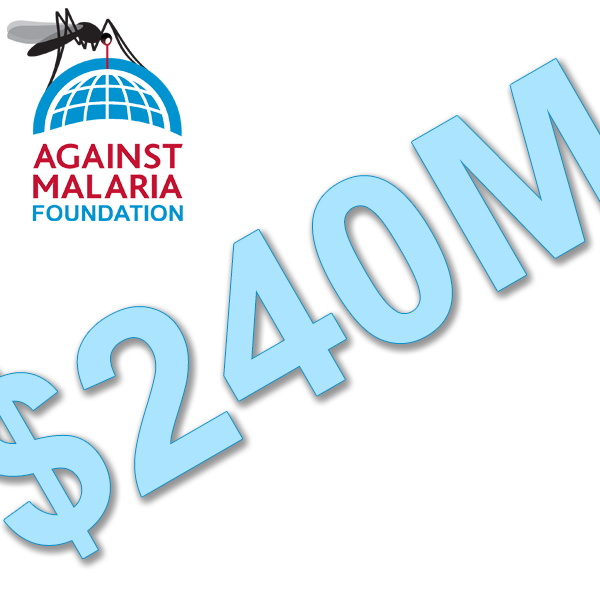 We have now reached a total raised of US$240,000,000 since AMF started and the donation that took us past that milestone was one from Cardiff, Wales! Diolch!
This equates to the funding of more than 109 million nets to protect 196 million people and an expected impact, once all nets are distributed, of more than 52 to 63 million cases of malaria averted, 73,000 to 83,000 lives saved, and economic improvement of US$2.8billion.
We have also just passed 504,000 donations received, with this coming from over 130,600 people in 192 countries!
As always, our sincere thanks to everyone for their wonderful support and generosity.
|
AMF features in a recent documentary published by The Economist, called "Charity: how effective is giving?" and the AMF section is from approximately 21 - 26 minutes.
The interview took place with Julian Austin, AMF’s Operations Director, during his most recent trip to Guinea where AMF distributed 4.8 million nets last year.
The discussion includes an overview of Effective Altruism (EA), and highlights the wider benefits to the economy of a country receiving long-lasting insecticidal nets. It is estimated that for every dollar spent in combatting and fighting malaria through bednets, 12 dollars is generated in GDP for that country.
It includes a review of one of the criticisms of the EA community's approach to giving - that giving is not a science and that the EA community appeals too much to logic and hard numbers. Julian's response was:
"We’re here at the hospital today and there are numerous young children who are suffering from severe malaria, and you can see worried parents everywhere. I don’t see a lack of emotion in any of that at all."
|
A short update on activities that have taken place at the beginning of this year.
 In Uganda, where AMF has signed an agreement with the Ministry of Health to fund 11.6 million nets for the 2020 mass distribution campaign, roughly half of these will be PBO nets. In 32 of the 67 districts receiving AMF nets, a study will be carried out to assess the effectiveness of a new type of net, called Royal Guard. This net, designed for areas with pyrethroid resistance, is a dual active ingredient (AI) net, meaning that it has two chemicals that can kill mosquitoes. For Royal Guard, these are alphacypermethrin and pyriproxyfen. Their effectiveness will be compared to PBO nets. Separately, the post distribution monitoring (PDM) 30 months after the 2017/18 distribution was carried out in the Eastern region late last year. The results show sleeping space coverage of 80%, which is a very good result. The PDM-30 in the Western region was carried out in February and paper copies are being sent to the data centre in Kampala for entry into our database.
In Uganda, where AMF has signed an agreement with the Ministry of Health to fund 11.6 million nets for the 2020 mass distribution campaign, roughly half of these will be PBO nets. In 32 of the 67 districts receiving AMF nets, a study will be carried out to assess the effectiveness of a new type of net, called Royal Guard. This net, designed for areas with pyrethroid resistance, is a dual active ingredient (AI) net, meaning that it has two chemicals that can kill mosquitoes. For Royal Guard, these are alphacypermethrin and pyriproxyfen. Their effectiveness will be compared to PBO nets. Separately, the post distribution monitoring (PDM) 30 months after the 2017/18 distribution was carried out in the Eastern region late last year. The results show sleeping space coverage of 80%, which is a very good result. The PDM-30 in the Western region was carried out in February and paper copies are being sent to the data centre in Kampala for entry into our database.
-
In DRC, the registration of 550,000 households in Sud Ubangi province using electronic devices is complete and the results are being validated. Distribution will be carried out ‘door to door’, meaning that nets are distributed and hung in households, as opposed to beneficiaries going to a fixed distribution site to collect them. In Haut Katanga province, the registration of 1.4 million households is complete and results are being validated. Our partner AGAPE is entering the paper-based records at the data centre AGAPE has established in Kinshasa, working three 7 hour shifts to enter data at a rate of approximately 40,000 households per day. Distribution is now scheduled for April. Registration in Tanganyika province is also being carried out in April. For the 2020/21 mass distribution campaign, AMF has signed its largest ever agreement with the Ministry of Health to fund 16.2 million nets. Nets for the first two provinces of this agreement, Kongo Central and Kinshasa, have been ordered. There have been moderate delays in production due to coronavirus but distribution dates are not affected.
-
In Guinea, we have signed an agreement with Cabinet Diagnostic to carry out PDMs. The first PDM at 9 months is taking place using electronic devices. Data is available in near real time and is being uploaded to our database. Nets that were diverted to Mali have been identified in Bamako, of which 45,900 (representing 0.95% of the 4.8 million nets funded) are AMF nets. Discussions are ongoing between the Malian and Guinean authorities for these stolen nets to be returned to Guinea. The nets will be returned to Guinea and all will be used to protect Guineans as intended.
-
In Zambia, we are investigating an issue regarding the distribution data from the previous campaign in 2018. During the PDM-18 in Central, North-Western and Western province, our partner organisation CHAZ will collect paper copies of the distribution data in order to re-enter a portion into our database. This work begun last month but has been delayed by security concerns in Zambia.
-
In Ghana, we have completed PDMs 9-months following distribution. The results show hang up rate (the proportion of AMF nets that are found hanging) of 71%, which is lower than expected. We have shared the results with the National Malaria Control Programme (NMCP) to understand what actions can be taken to improve net usage. The first PDM 18 months post distribution in Brong Ahafo region is currently taking place.
-
In Malawi, our PDM partner has finished the first round of PDMs at 9 months. The sleeping space coverage at 9 months is 72%.
-
In PNG, our partner RAM has begun their distribution in the provinces scheduled for 2020, starting with Milne Bay. Over the coming year, 1.1m AMF-funded nets will be distributed in areas of Papua New Guinea with high risk of malaria. The 2019 campaign is now complete, with the final nets distributed in East New Britain.
-
In Togo, orders have been placed for 3.5 million nets to be produced for the 2020 campaign. On the basis of insecticide resistance data, half of the nets will be PBO nets. Registration is scheduled for August 2020.
|
 Coronavirus (COVID-19) has had some, but currently only a moderate, effect on bednet production estimated to be one month but, given planning margins, distribution dates are not affected.
Two of our manufacturers were forced to shut down their manufacturing plant in compliance with government regulations, despite being geographically distant from the most-affected areas.
Since putting in place protective measures and equipment for office and factory workers, they have applied successfully to restart work.
We have not been informed of any disruption to other manufacturers but are monitoring the situation closely with our production and in-country partners and will update again in the case of any changes.
|
 We have just passed 500,000 donations received since AMF started and the donation that took us past that milestone was one from Vancouver, Canada! Thank you!
We have also just passed US$ 238 million raised, with this coming from over 130,000 people in 192 countries!
This equates to the funding of more than 108 million nets to protect 194 million people and an expected impact, once all nets are distributed, of more than 52 to 62 million cases of malaria averted, 72,000 to 82,000 lives saved, and economic improvement of US$2.8billion.
As always, our sincere thanks to everyone for their wonderful support and generosity.
|
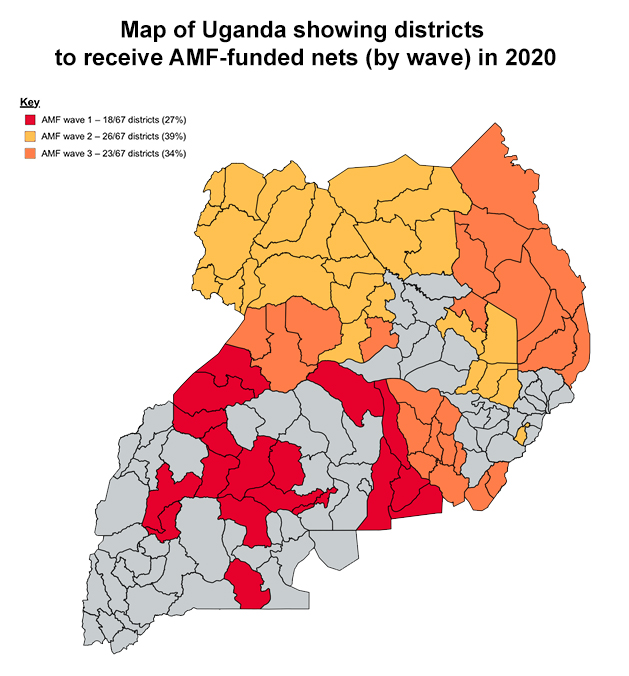
AMF has signed an agreement with the Uganda Ministry of Health to fund 11.6 million nets for distribution during 2020. This represents 50% of Uganda’s long-lasting insecticide treated net (LLIN) need for the 2020 universal coverage campaign.
This funding commitment continues our support for malaria control progress in Uganda as it follows the 12.7 million nets AMF funded for the 2017 campaign.
Uganda is seriously affected by malaria with an estimated 35 people dying each day from the disease and high incidence levels seen across the majority of the country. Malaria parasite prevalence levels in children under 5 range from 5 to 50% across the country.
The nets will be distributed in 67 of Uganda's 128 districts in a waved approach (see image).
20.9 million people will be protected from the bites of malaria-carrying mosquitoes.
The number of deaths and cases of illness in Uganda from malaria in 2017 is estimated by the WHO to be up to 17,000 and 13.6 million respectively.
These nets have the potential to play a major part in reducing deaths and illness. This quantity of nets could be expected to prevent about 8,000 deaths, 4 to 6 million cases of malaria and make a material impact on the economy of Uganda. It is estimated that the improvement in GDP (Gross Domestic Product), a measure of economic performance, would be about USD 280 million.
AMF allocates individual donations to specific distributions and so far we have allocated 18,542 individual donations from 7,378 donors from 87 countries. These figures will increase as further donations are allocated. Many donations, large and small, help fund these nets.
We will report openly on progress and performance throughout and after the distribution.
Key elements of our agreement include:
- AMF is funding 11,615,000 LLINs for distribution in 2020
-
This is a co-funding partnership with non-net costs (shipping, pre-distribution, distribution) funded by the Global Fund
-
To support accurate data gathering, re-checks of net need numbers will take place by re-visiting 5% of households chosen at random (‘105% Registration’) and by an independent third party re-registering a material number of entire villages (‘Independent Village Re-registration’, IVR).
-
Household-level data will be collected using electronic-devices and then imported into AMF’s Data Entry System (DES) for analysis and verification. This, and the above elements combined, are the basis for a highly accountable distribution.
-
Post-distribution monitoring of net use and condition (PDMs) will take place every nine months for two and a half years in all districts. AMF will fund this.
Further information via the dedicated distribution page
|
As 2019 draws to a close we would like to thank all who have supported and worked with AMF this year as without donors, distribution partners, volunteers and pro bono supporters we would not be able to do what we do in contributing to the fight against malaria. Thank you!

Future distributions
There remains a huge need for nets. The gap for the next two years runs into tens of millions of nets. AMF is involved in discussions with a number of countries requiring millions of nets each for the period 2020 and 2021. AMF’s immediate funding gap is many tens of millions of dollars.
We will publish commitments as they are made.

482,000th donation and over US$226 million raised so far! (getting close to a quarter of a billion!)
We are thrilled to have recently received our 482,000th donation, with most donations ranging from a few dollars (and £, €, CAN$, NZ$, AUS$, bitcoin and more) to many thousands.
We are so grateful for your support. Thank you!

Tax-Deductibility
We now have tax-deductible status in a dozen countries. We continue to assess the need for tax-deductibility status in other countries, some of which are already in the application stage and we hope to complete in the very near future.

AMF top ranked!
AMF has again been top-ranked by the two leading organisations 'dedicated to finding
outstanding giving opportunities'.
GiveWell has ranked AMF a top charity, for the eighth
time in nine years
The Life You Can Save has AMF as a top-ranked charity for the ninth year in a row

A suggestion for the Christmas/Holiday season!
Donate nets instead of gifts.
We send the recipient/s an email (on a date you choose e.g. 25th Dec) with your
personal message and a link to their 'gift page', allowing them to follow the progress
of their nets.
May we wish you a very happy and healthy 2020!
Rob, Andrew, Peter, Julian, Jenny, Shaun, Aisling and David
|
 We have now reached a total raised of US$225,000,000 since AMF started and the donation that took us past that milestone was one from Tampere, Finland! Kiitos!
This equates to the funding of more than 104 million nets to protect 187 million people and an expected impact, once all nets are distributed, of more than 50 to 60 million cases of malaria averted, 70,000 to 80,000 lives saved, and economic improvement of US$2.7billion.
We have also just passed 480,000 donations received, with this coming from over 126,830 people in 192 countries!
As always, our sincere thanks to everyone for their wonderful support and generosity.
|
A short update on activities going on this month.
-
In Uganda, the first results of the study into the effectiveness of a new type of net have been published. Read more here. Our PDM partner has completed the 30-month PDM in some districts in the Eastern region and all data will be entered in December.
-
In DRC, the distribution of 1.5 million nets in Équateur province has been completed. See photos below. Distribution data has been sent to Kinshasa, where it is being entered into AMF's database. In Haut Katanga, the registration of 1.4 million households has begun with a pilot of electronic data collection in three of the 27 health zones. This will be the first time that our distribution partner, SANRU (Santé Rurale), will conduct electronic data collection and this will be a chance to gain experience at scale before the registration of all provinces in 2020 and 2021 is performed electronically. This is one of the largest provinces in DRC where 4.1 million nets will be distributed in February and March. Registration in Sud Ubangi province begins on 17th December. Significant flooding has caused some disruption to the distribution schedule with an estimated 150,000 people internally displaced.
-
In Togo, 3.5 million nets are being ordered for the 2020 campaign, following the signature of an agreement last month. Given evidence in some locations of insecticide resistance, we are considering a possible purchase of PBO nets.
-
AMF is still hiring for two positions, an Operations Manager and a Full Stack Developer, with an application deadline of 6th January 2020
-
In Ghana, we have completed the 9-month post-distribution monitoring (PDM), and we will discuss the results with the National Malaria Control Programme (NMCP) to understand what actions can be taken to improve net usage. The next PDM will take place in March 2020.
-
In Malawi, our PDM partner has finished the first round of PDMs. Data is being imported into our Data Entry System, after which it will be analysed.
-
In Guinea, PDMs will begin in February 2020 and we will shortly select our PDM partner. Investigations into a possible theft of AMF nets are almost complete (with positive news), and we will post an update in the next two weeks.
-
In PNG, our partner RAM continues to distribute nets on a rolling basis. Distributions have been completed in 6 of the 8 provinces scheduled for 2019, with 650,000 nets distributed. The reminder of the one million nets funded for 2019, 350,000, are scheduled to be distributed in January and February 2020. Nets are on their way to PNG for the first province, Milne Bay, that will receive AMF-funded nets in the 2020 campaign with net orders for additional provinces being placed shortly.
-
In Zambia, the 18 months PDM in Eastern province is now complete and our partner organisation is currently entering the data into AMF’s database.
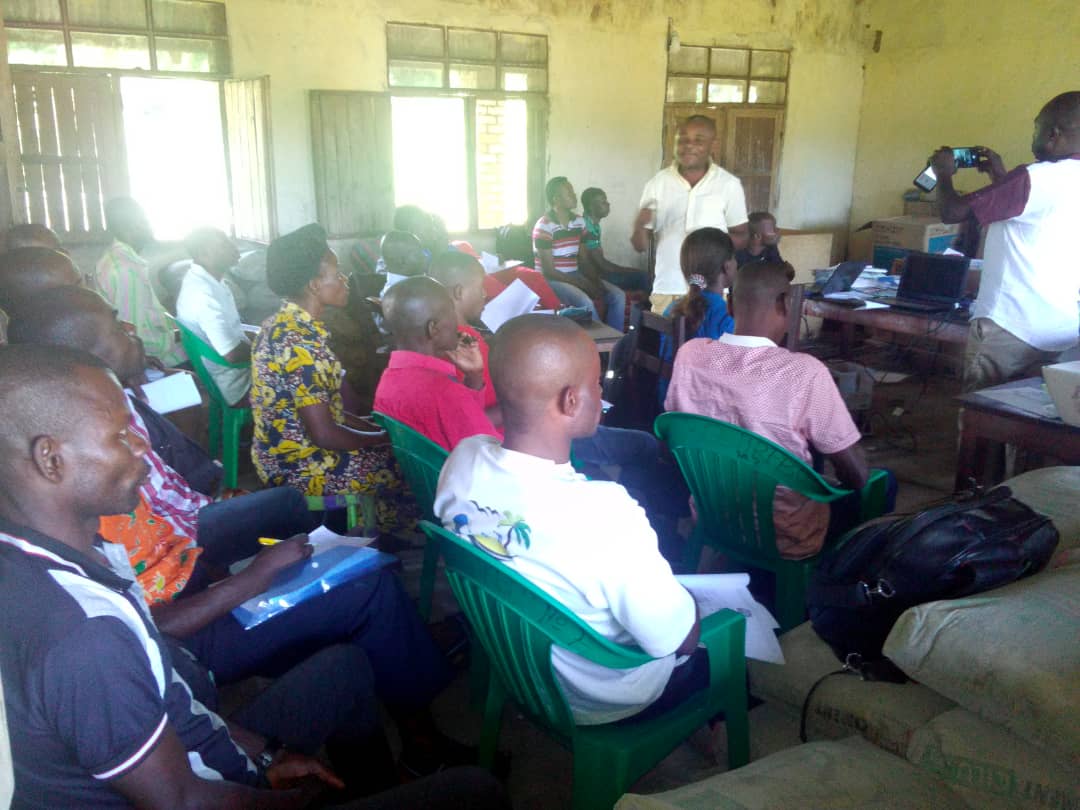
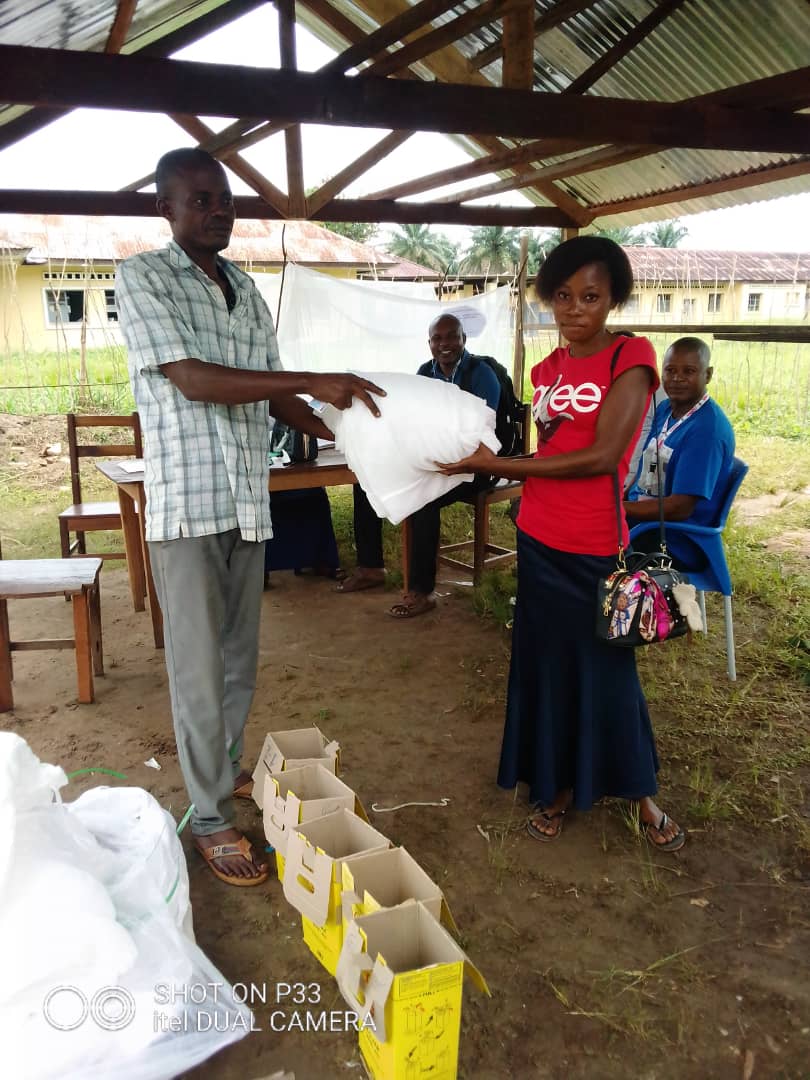

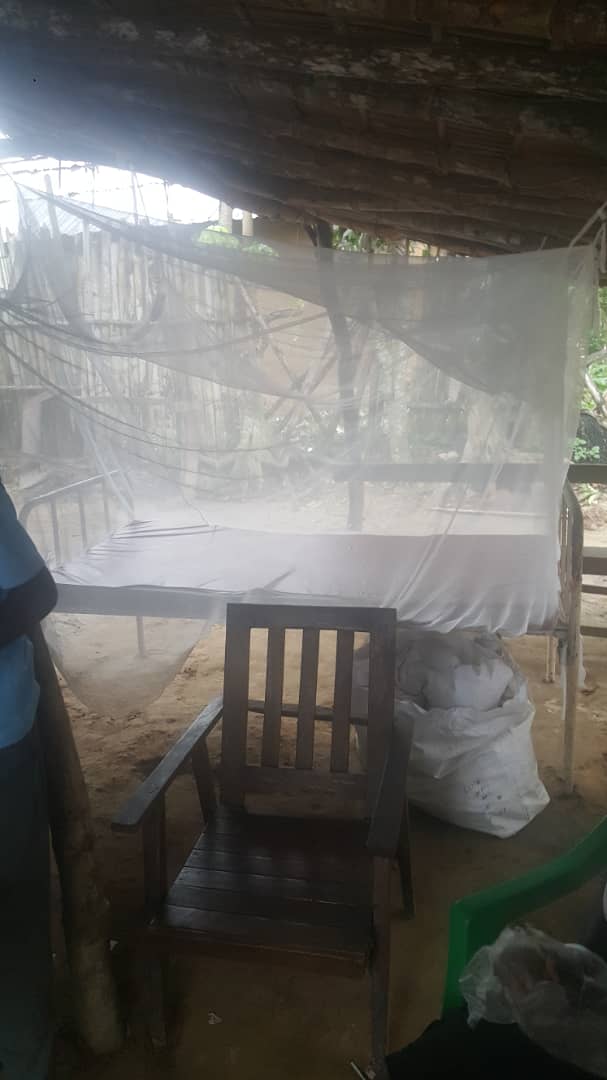
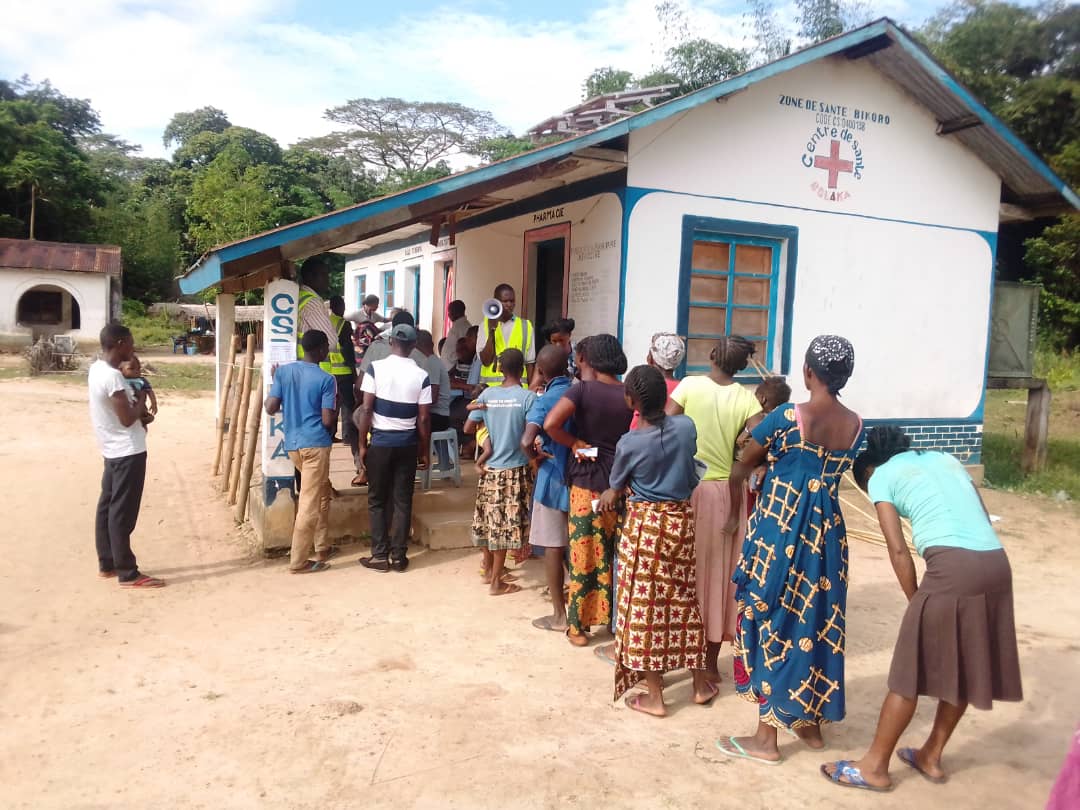
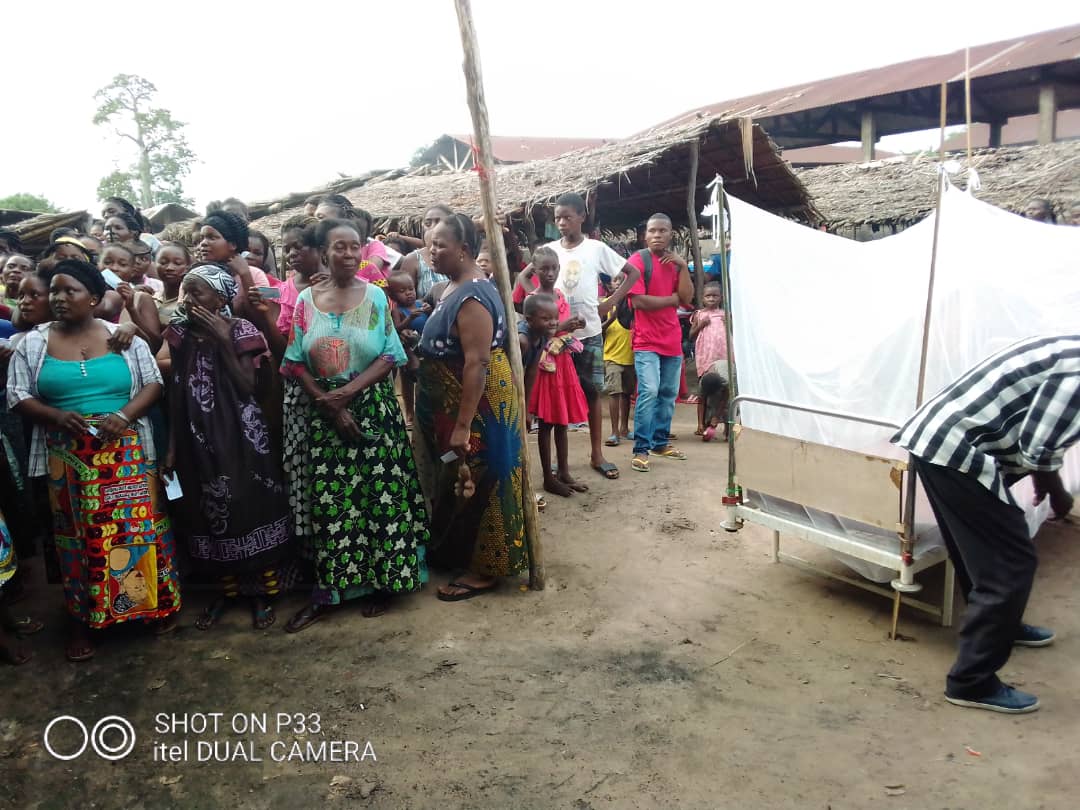
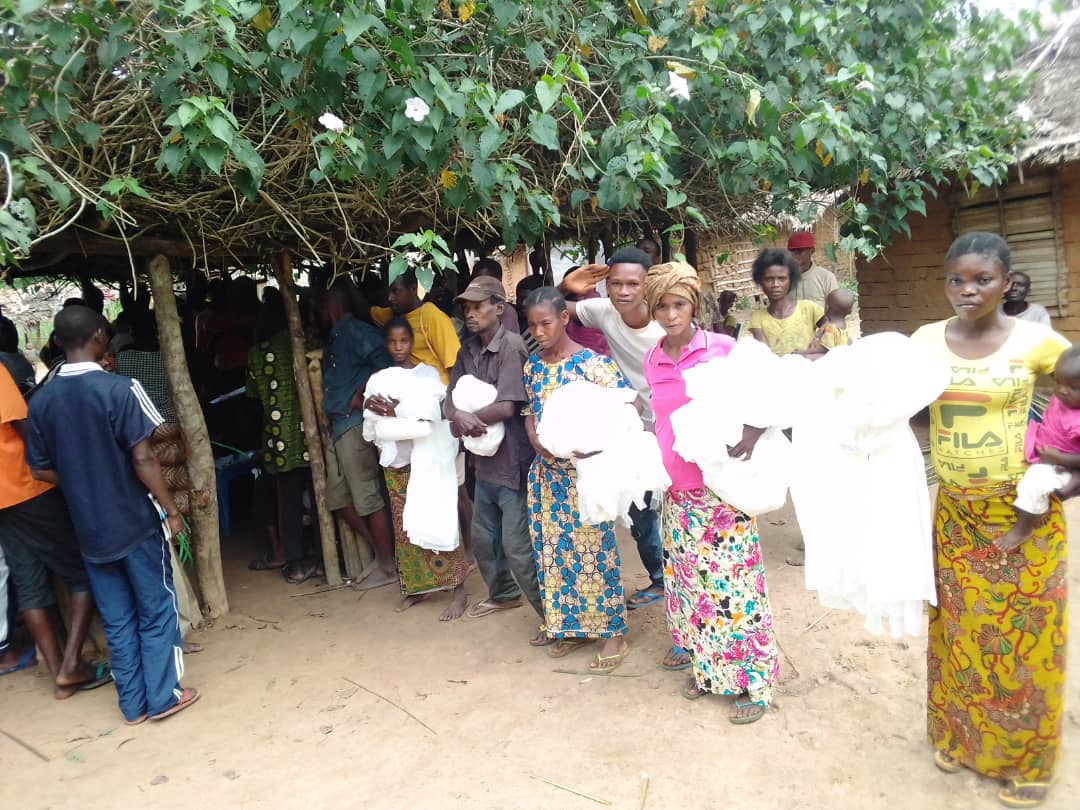
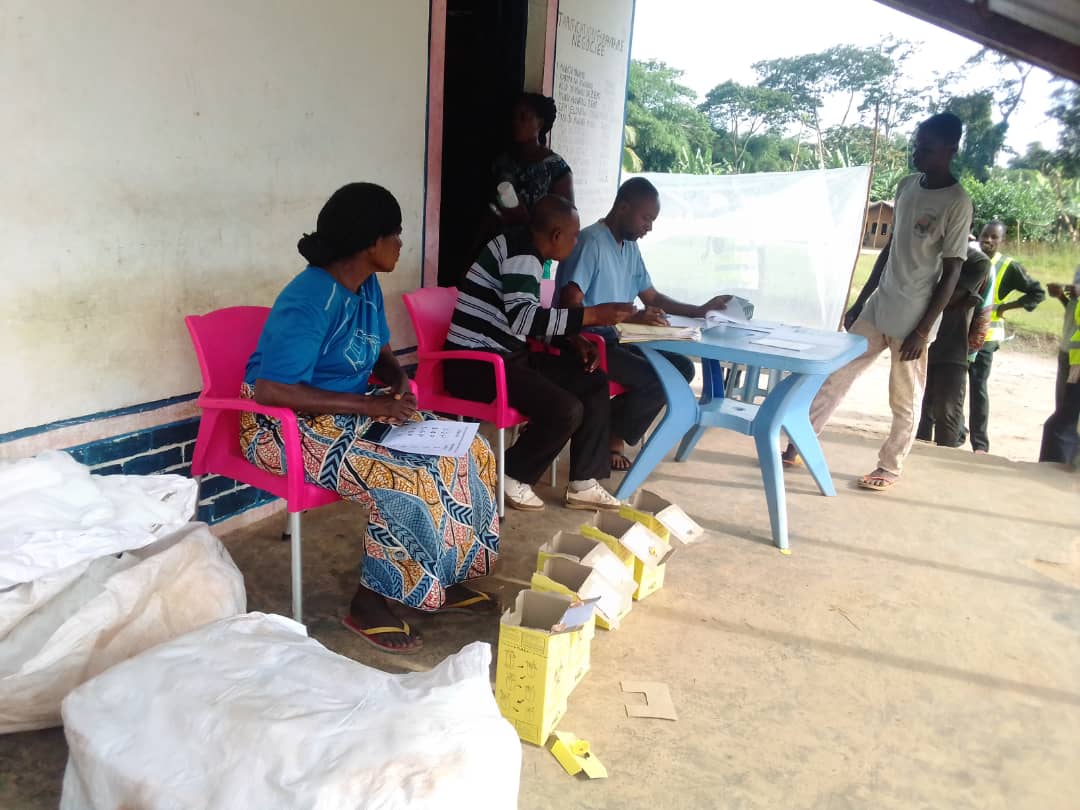
|

Summary
AMF funded the largest trial ever undertaken to assess the effectiveness of a new type of net in dealing with those malaria-carrying mosquitoes that are developing some level of resistance to the insecticide used on nets. The results of the first 18 months of the trial have just been released.
The net type being assessed was the ‘PBO net’, so called as piperonyl butoxide is added to the net to counteract the resistance mechanism in the mosquito, thereby allowing the insecticide on the net to work as usual and kill the mosquito.
The results show that both conventional nets and PBO nets reduced malaria prevalence. PBO nets were more effective, both at killing mosquitoes and at reducing malaria in the population. Specifically, after 6 months (of usage) PBO nets were 26% more effective at reducing malaria, after 12 months 27% better, and after 18 months 16% better.
PBO nets are currently more expensive than conventional LLINs. However, manufacturing capacity is growing and, as it does, PBO nets are likely to become more attractive compared to conventional nets in countries (like Uganda) of high resistance.
Detail
The trial used an innovative design, being conducted as part of Uganda’s nationwide net campaign which began in 2017. It assessed new nets in the context of a mass campaign rather than in a separate field trial. AMF provided 6 million PBO nets and 6 million conventional nets to the campaign and the study took place across 104 districts, approximately half the population and land area of the country.
Data was analysed from blood tests of over 23,000 children 2 to 10 years old. After 18 months, malaria prevalence had declined with the use of both conventional nets and PBO nets. PBO nets were more effective in reducing malaria prevalence at each of the time points – 6, 12 and 18 months. This was reinforced by a very significant effect on the mosquito population. After 12 months, households supplied with the PBO-treated nets had 80% fewer malaria-carrying mosquitoes compared to households using conventional LLINs.
The results therefore suggest that although both PBO and conventional nets were effective, PBO nets provided better protection against malaria in the setting of high-level insecticide resistance.
AMF’s approach is to evaluate any malaria resistance data in an area to receive nets, then apply the most cost-effective net intervention on a region-by-region or country-by-country basis. We do this by applying the research to country data, and work in close collaboration with national malaria programme teams and other partners. We strongly encourage more data collection on resistance patterns and the nature of that resistance, and will continue to encourage research into this critical area.
AMF is very pleased that the research concluded on time, on budget and gained additional support from DFID (for the 18 month results) and The Gates Foundation (for the 24 month results to come).
We would like to thank the teams at the Liverpool School of Tropical Medicine, London School of Hygiene and Tropical Medicine and the Makerere University Kampala for their hard work throughout the study.
We will add a link to the publication as soon as it is available, which we expect to be shortly.
|

AMF has signed an agreement with the DRC Ministry of Health to fund 16.2 million nets for distribution from June 2020 to March 2021. This represents 67% of DRC’s long-lasting insecticide treated net (LLIN) need for the 2020/21 portion of their three-year rolling universal coverage campaign.
DRC is one of the two most malarious countries in the world with malaria responsible for the deaths of at least 100 children under 5 each day in DRC alone. Malaria is one of the primary health issues in DRC, with high incidence levels seen across the majority of the country.
The nets will be distributed in seven of DRC's 26 provinces, specifically:
-
Kinshasa: 4.1m nets to protect 7.4m people, distribution during Q2/Q3 2020
-
Kongo Central: 2.6m nets to protect 4.7m people, distribution during Q2/Q3 2020
-
Tshopo: 2.2m nets to protect 4m people, distribution during Q3/Q4 2020
-
Haut Uele: 1.2m nets to protect 2.2m people, distribution during Q3/Q4 2020
-
Ituri: 3.6m nets to protect 6.5m people, distribution during Q3/Q4 2020
-
Maniema: 1.7m nets to protect 3m people, distribution in Q1 2021
-
Bas Uele: 0.8m nets to protect 1.4m people, distribution in Q1 2021
In total, 29 million people will be protected from the bites of malaria-carrying mosquitoes.
These nets have the potential to play a major part in reducing deaths and illness. This quantity of nets could be expected to prevent 10,500 deaths, 5 million cases of malaria and make a material impact on the economy of DRC. It is estimated that the improvement in GDP (Gross Domestic Product), a measure of economic performance, would be about USD 385 million.
AMF allocates individual donations to specific distributions and so far we have allocated 50,310 individual donations from 12,990 donors from 105 countries. These figures will increase as further donations are allocated. Many donations, large and small, help fund these nets.
We will report openly on progress and performance throughout and after the distribution.
Key elements of our agreement include:
-
AMF is funding 16,200,000 LLINs for distribution in 2020/21
-
This is a co-funding partnership with non-net costs (shipping, pre-distribution, distribution) funded by the Global Fund
-
To support accurate data gathering, re-checks of net need numbers will take place by re-visiting a material number of households chosen at random.
-
Household-level data will be collected on paper or using electronic-devices and then entered into AMF’s Data Entry System (DES) for analysis and verification. This, and the above elements combined, are the basis for a highly accountable distribution.
-
Post-distribution monitoring of net use and condition (PDMs) will take place every nine months for two and a half years in all districts. AMF will fund this.
Further information via the dedicated distribution page
Other DRC distributions
2019 Equateur and Sud Ubangi
2019 Tanganyika, Haut Katanga and Haut Lomami
|
A short update on activities going on this month.
-
AMF is hiring for two exciting positions - an Operations Manager and a Full Stack Developer.
-
In DRC, the distribution of 1.5 million nets in Équateur province began on 17th October and is being wrapped up in all health zones. Distribution data is being validated and sent to Kinshasa, where it will be entered into AMF's database. In Haut Katanga, the registration of 1.4 million households will now take place with a pilot of electronic data collection in three of the 27 health zones. This will be the first time that our distribution partner, SANRU (Santé Rurale), will conduct electronic data collection and will be a chance to gain experience at scale before the registration of all provinces in 2020 and 2021 is performed electronically. This has pushed back the registration to November. We have signed an agreement with our data entry partner, AGAPE, to put in place a data entry centre in Kinshasa to enter into AMF’s database the registration data collected on paper from the households in the remaining 24 health zones.
-
In Togo, a new agreement has been signed with the Ministry of Health to fund 3.5 million nets for the 2020 campaign. The 24-month PDM has been carried out in all four regions (Savanes, Kara, Centrale and Plateaux) that received 2.4 million nets in 2017. Data was collected using electronic devices and will be sent to AMF shortly. Photos below show the challenges of reaching randomly selected households during the current rainy season.
-
In Ghana, our PDM partner World Vision has completed data collection for the 9-month PDMs in regions that received AMF nets. Data was collected with electronic devices and 1.5% of all households that received AMF-funded nets were visited. The sleeping space coverage across these areas is 62% and the next step will be to discuss this with the National Malaria Control Programme to understand what actions can be taken to improve net usage.
-
In Malawi, our partner the Malawi Red Cross Society has finished PDMs in Central region and data will shortly be imported into our Data Entry System. We have shared initial results with the National Malaria Control Programme who are considering actions to be taken to increase net usage where necessary.
-
In Guinea, we are tendering for a PDM partner to carry out post-distribution monitoring at 9, 18 and 27 months across 1.5% of all households that received AMF-funded nets, collecting data electronically. PDMs will begin in February 2020. Investigations into a possible theft of AMF nets are ongoing, and we will provide a dedicated update in November.
-
In Uganda, our PDM partner organisation Malaria Consortium, with their implementing partner PACE, is carrying out the 30-month PDM in the Eastern region.
-
In PNG, our partner RAM continues to distribute nets on a rolling basis. Distribution has been completed in 5 of the 8 provinces scheduled for the year, with distribution ongoing in the Autonomous Region of Bougainville (ARoB, previously known as North Solomons province). More than 500,000 nets have been distributed in 2019. Orders have been placed for the first province that will receive AMF-funded nets in the 2020 campaign, Milne Bay.
-
In Zambia, the next PDM to take place will be in Eastern province at 18 months post distribution. We have signed an agreement with our partner CHAZ to carry out this work in October and November.
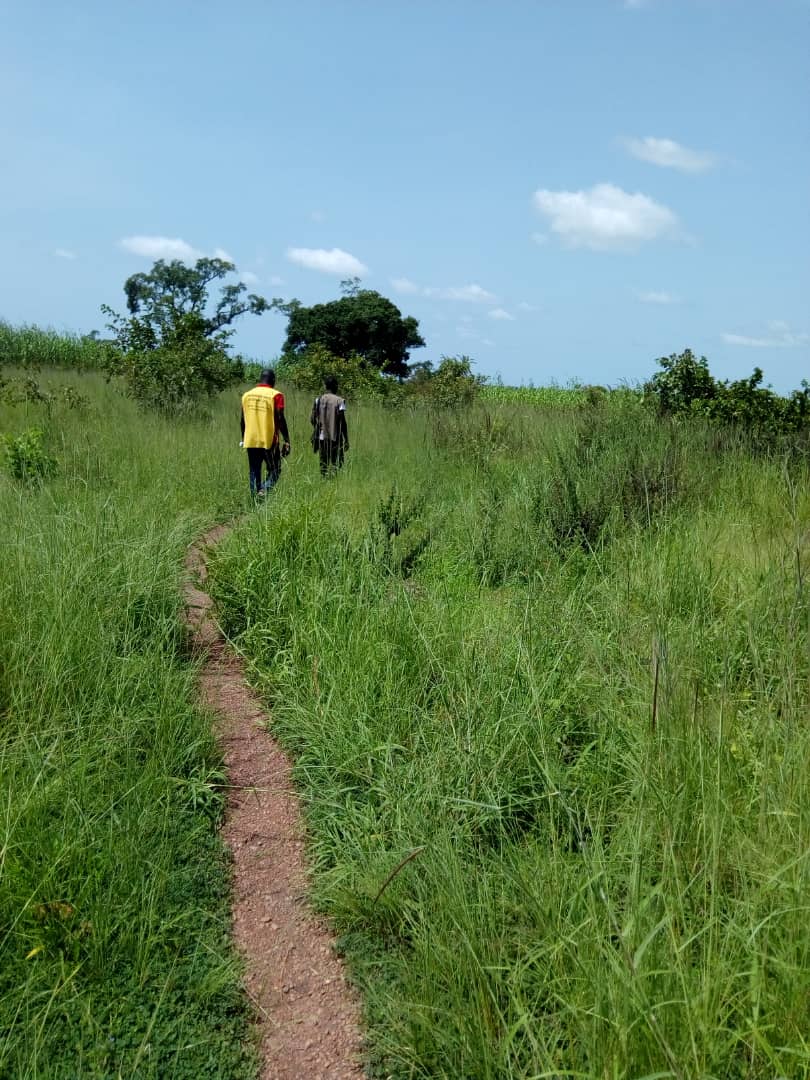


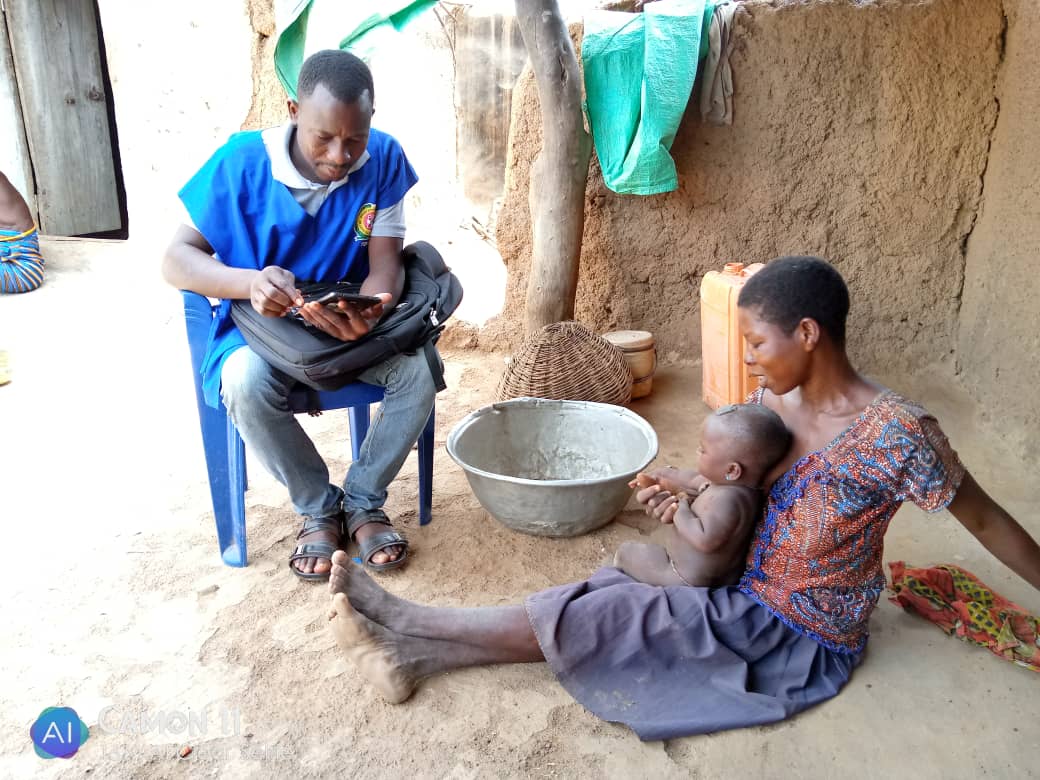
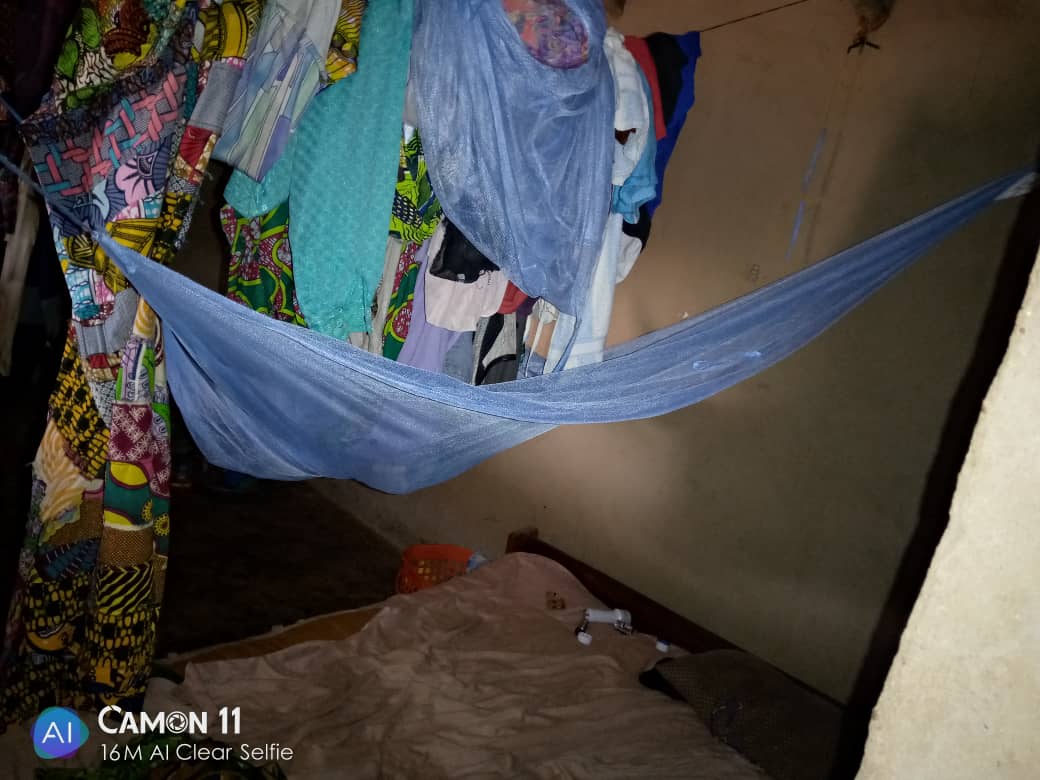
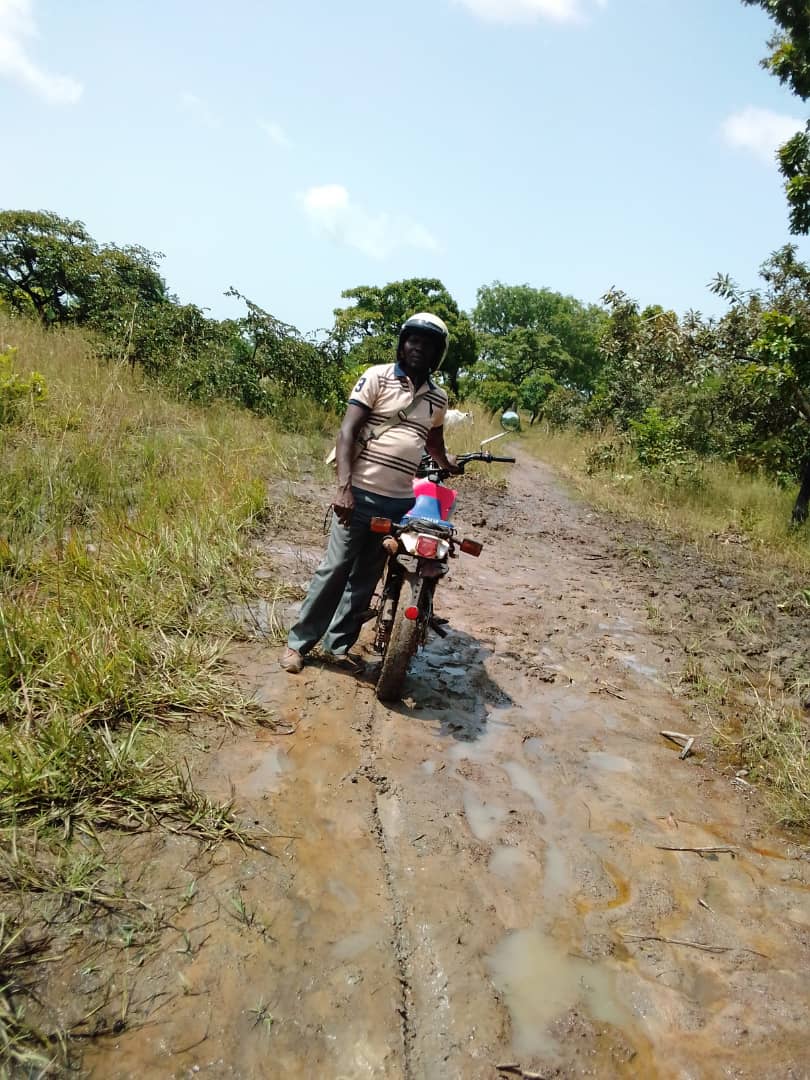


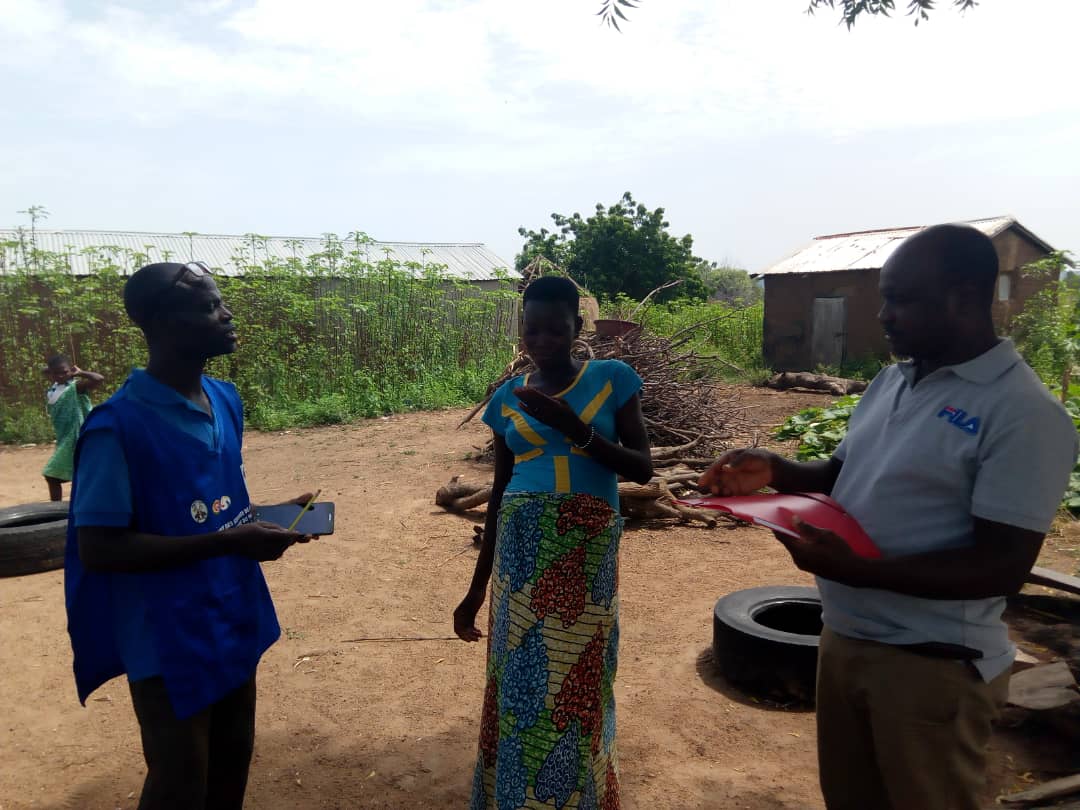

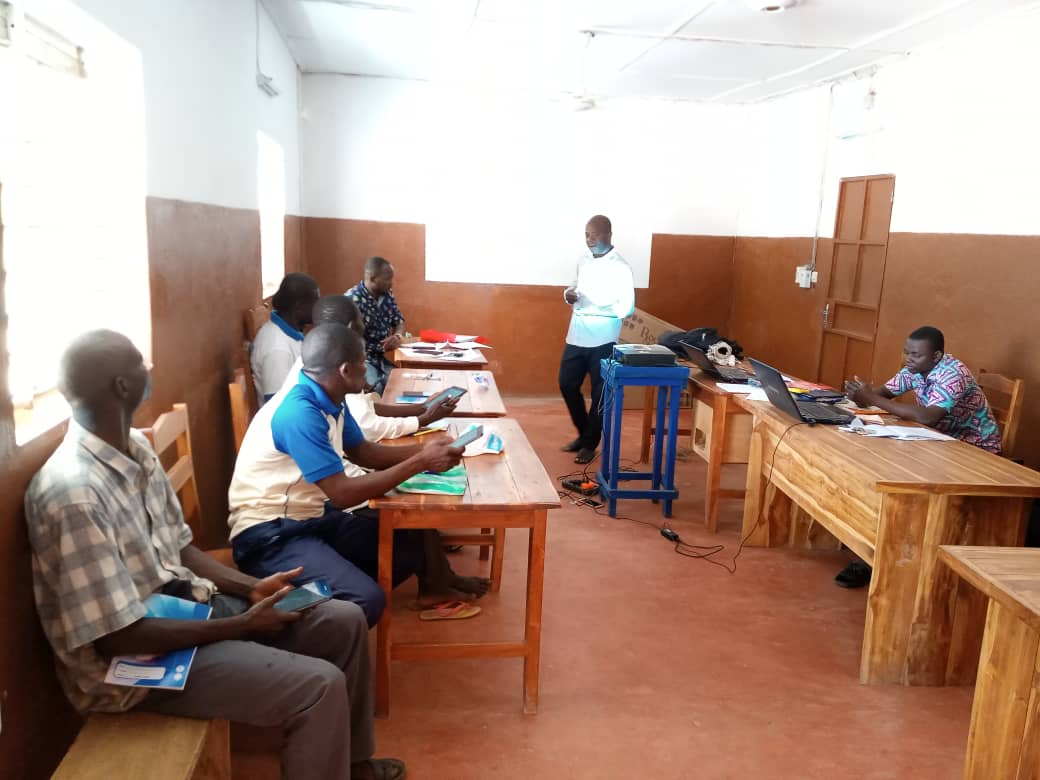
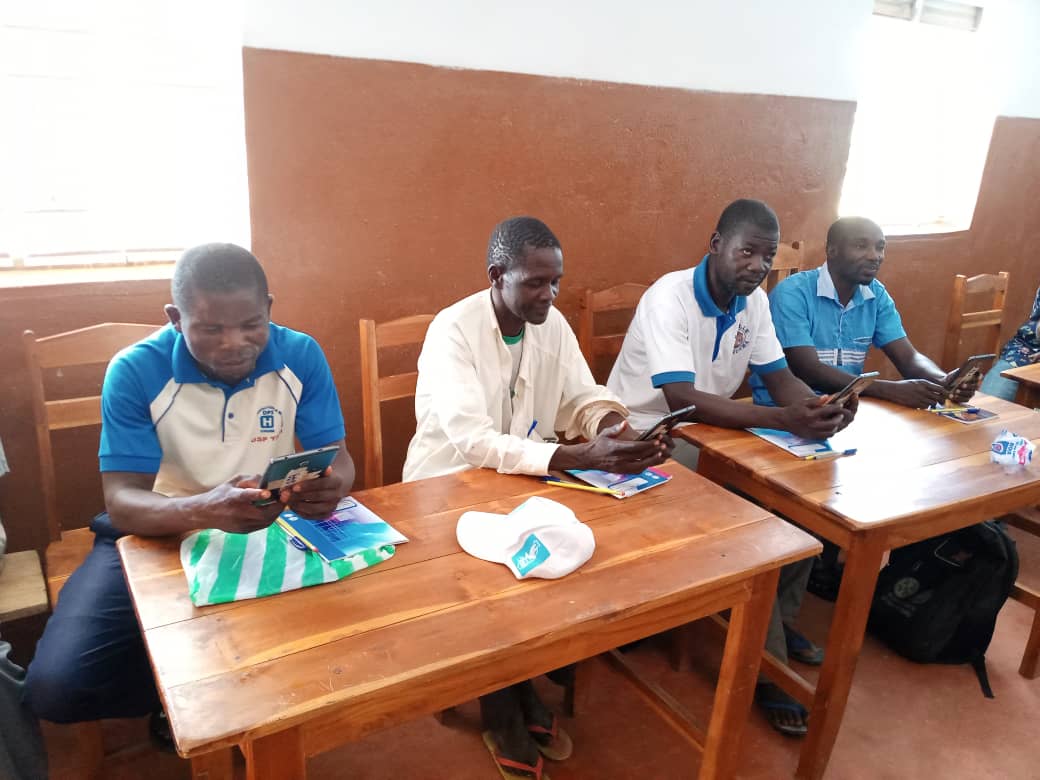
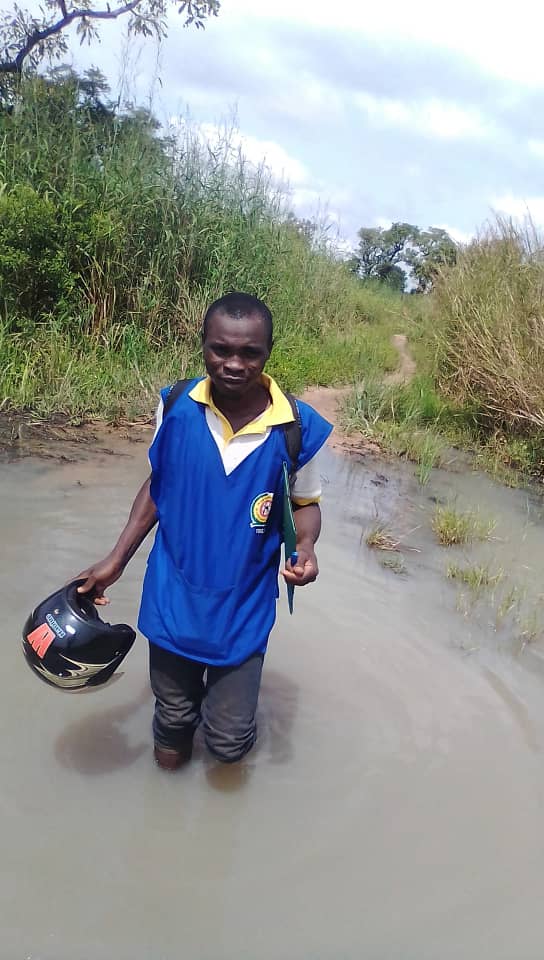
|